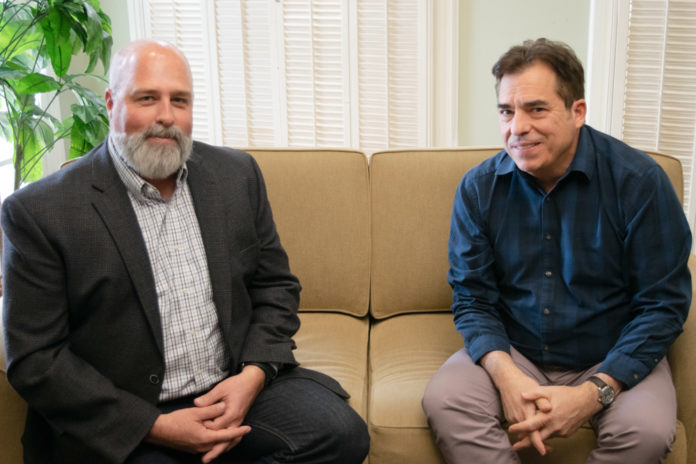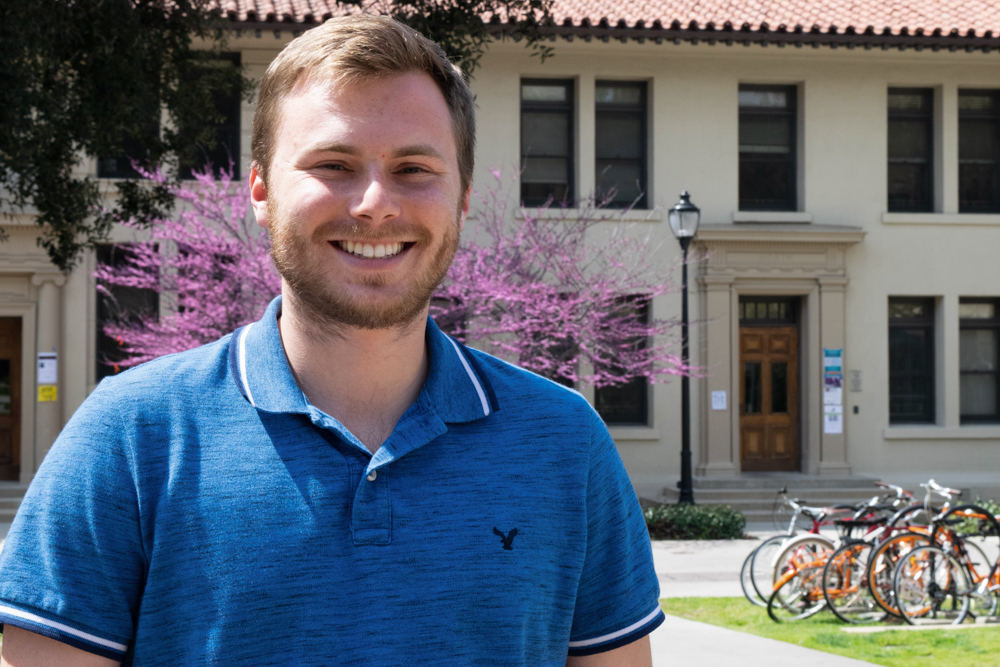
Occidental College’s office of admission released acceptance decisions to students across the country March 20. This year marked a record for Occidental, with the office receiving exactly 7,500 applications. This is a three percent increase from last year and a 15 percent increase over the last three years, according to Associate Vice President of Enrollment Chris Ferguson. As the number of applicants has increased, the Office of Admission has implemented measures to maintain a thorough review process as well as to promote transparency and integrity in the wake of the recent admission scandals at colleges throughout the U.S., according to Vice President of Enrollment and Dean of Admission Vince Cuseo.
“We want this process to be as fair and as just as this selection process can be, realizing that there are going to be imperfections — as we’ve seen in the greater world of higher education,” Cuseo said.
According to Cuseo, most applications to Occidental are read at least twice by two different staff members. All application readers go through extensive training to prepare them to evaluate applications effectively. According to Ferguson, this training involves reviewing sample applications, discussing them and studying the in-office manual that is provided as a guide. The goal is to create a standardized process that allows all applications to be evaluated using the same criteria, something that Cuseo views as vital to the admissions process.
Cuseo attributes the scandals at other colleges and universities to the overall culture within those institutions.
“There must be a culture that allows for something like that to happen, or there’s a culture that disallows something like that from ever happening,” Cuseo said. “I think it really includes every member of an organization, but really it’s the powers that be within the organization that set the culture of any particular place, and that really drives the behavior within.”
According to Cuseo, there are aspects of the admission process that individual institutions don’t have direct control over, such as cheating on standardized tests like the SAT.
“That’s the College Board’s responsibility or the individual site where the testing is taking place,” Cuseo said. “It would be impossible for us or any college to have control over that.”
However, he views institutions as responsible for their own staff and the level of honesty and accountability they foster.
“You do have some measure of control over your own personnel. And that’s where integrity comes in. If it wasn’t for those people at the University of Southern California (USC) in their athletic department, then this would never have occurred,” Cuseo said in reference to the recent scandal that involved several USC coaches accepting bribes from parents to help their children gain admission to the school.
In the wake of the recently uncovered admission scandals, many of which involved cheating on the SAT and ACT, the use of standardized tests in the college admission process has been challenged. In the last few years, an increasing number of schools have decided to become test-optional, not requiring students to submit scores. This is a move that Occidental has not taken and that Cuseo does not foresee occurring in the near future. One reason for this is that he feels it serves the institution more than prospective students.
“It seems odd to me that these schools who sort of pat themselves on the back for being test optional will still, of course, take the testing for students who do extremely well on the exam, and for those who don’t, they don’t need to submit those scores,” Cuseo said. “Then, of course, the institution doesn’t have to report the lower scores in the profile of their first-year class.”
In addition, Cuseo sees standardized tests as a valuable measure that can serve to ground the admission process. However, he did emphasize that it is not the most important factor, as Occidental takes a holistic approach to the admissions process.
“’Holistic review’ means you’re using something other than just straight GPA, or even just straight numbers,” Cuseo said. “We require standardized testing, but seek out other pieces of information.”
These other elements include essay responses, extracurricular activities, teacher and counselor recommendations and interviews that are conducted by current Occidental students.

Student-led interviews are one way that Occidental students are involved in admissions and have some input into the decision-making process. Justin Ratzan-Wank and Dire Ezeh are two of the senior fellows and student interviewers in the Office of Admission this year. Ratzan-Wank sees the purpose of interviews as a way to learn more about who a student is.
“It’s to understand the student in their entirety,” Ratzan-Wank said. “We’re not just looking at one particular aspect and saying you’re in or you’re out, you’re really kind of able to paint a picture.”
Ezeh added that he sees value in having students involved in the admission process.
“Being able to have an inside view into how admission processes are, I feel like it’s pretty transparent and a very straightforward process,” Ezeh said.
Transparency is also something that Ferguson noticed at Occidental in comparison to his past places of employment.
“This is the most inclusive, transparent process that I’ve ever seen in any institution that I’ve worked at, and I’ve worked at another three institutions where I oversaw both graduate and undergraduate admissions,” Ferguson said.
Ferguson said he believes that having students involved in the process contributes to this transparency. According to Ferguson, in addition to student-run interviews, Occidental introduced Andres Mezquita as their first student application reader this year. Mezquita is another senior fellow in the Office of Admission and read around 200 applications this year, bringing a student perspective to the process.
“[As a student] you’re very invested in Oxy’s community. You’re still taking classes and you’re interacting with the students at Oxy,” Mezquita said. “So I think you get a clear picture of what kind of student thrives in the Oxy community.”
The student reader position makes Occidental unique, according to Ferguson.
“A lot of schools aren’t willing to do that because I think a lot of times people think it’s a secretive process, but I think Oxy takes pride in not being that way — in being much more inclusive,” Ferguson said.
This year’s record 7,500 applicants reflects a larger nationwide trend toward an increasingly competitive college application process. According to Ferguson, the recent nation-wide scandal raises the need for action to be taken in order to prevent further cheating in this hyper-competitive environment.
“There is an admission code of ethics and I think given what happened last week, we need to revisit that,” Ferguson said. “I think that there are things institutions can put in place internally to monitor and manage differently, to be more aware of who’s being admitted.”
![]()






























